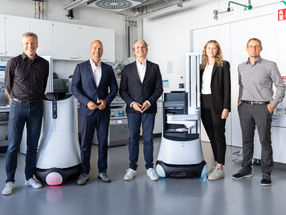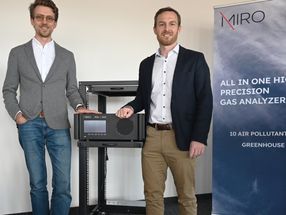Vogelbusch: Patent application for the optimisation of a chromatographic separation process
Vogelbusch GmbH has applied for a patent for a highly-efficient chromatographic separation principle. The process adapts the separation process known as "simulated moving bed" to the specific needs of pharmaceutical companies. A prototype was presented to an audience of experts for the first time at the PREP 2008 conference in San Jose, California.
Conventional chromatography is a well-established standard procedure used in the pharmaceutical industry to separate mixtures of substances. Although simulated moving bed (SMB) chromatography represents the cutting-edge of technology in the commodity sector, it has seldom been used in the pharmaceutical industry.
With the development of an innovative distributor system, Vogelbusch has for the first time succeeded in adapting SMB chromatography for use in the pharmaceutical industry. The distributor system has been optimised specifically for use in single column SMB, which has numerous commercial and process engineering benefits over multicolumn SMB. In particular, the distributor device - for which a patent application has been submitted - is perfect for small-scale use, making it the ideal response to calls from the pharmaceutical industry for highly-efficient processing of low batch volumes, according to the company. Vogelbusch GmbH has been operating a larger-scale single column SMB pilot system for use in the commodity sector at its headquarters in Vienna for some time. Having impressed representatives of the pharmaceutical industry, this system was the catalyst behind the call for smaller systems.
The system is based on liquid distributors which enable the individual process streams to be introduced into and/or drawn off from the adsorbent evenly at various points in the column. While the various inlet and outlet points of a multicolumn SMB are located in the piping between the columns, the distributor system now locates these in the adsorbent. The resin bed is no longer divided into several columns, which also eliminates the disadvantages associated with this process.
The distributor system was developed in cooperation with the Department of Biotechnology at the University of Natural Resources and Applied Life Sciences, Vienna. Outlining the technical advantages of the new single column SMB technology, Prof. Alois Jungbauer of the Department of Biotechnology explains: "If separation resins are used as adsorbents in SMB, they experience a change in volume between the charging and decharging of the columns. In the multicolumn process, this change in volume can lead to a decline in separation performance or a large hydrodynamic pressure drop. However, in the single column process, the expansion and contraction of the adsorbent occurs at various points in the column simultaneously. As a result, both effects cancel one another out and the volume - and thus the separation performance - remains constant."
See the theme worlds for related content
Topic World Chromatography
Chromatography enables us to separate, identify and thus understand complex substances. Whether in the food industry, pharmaceutical research or environmental analysis - chromatography opens up a treasure trove of information about the composition and quality of our samples. Discover the fascinating world of chromatography!

Topic World Chromatography
Chromatography enables us to separate, identify and thus understand complex substances. Whether in the food industry, pharmaceutical research or environmental analysis - chromatography opens up a treasure trove of information about the composition and quality of our samples. Discover the fascinating world of chromatography!































































